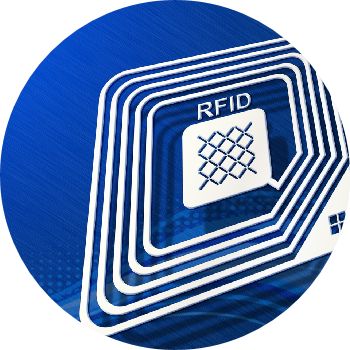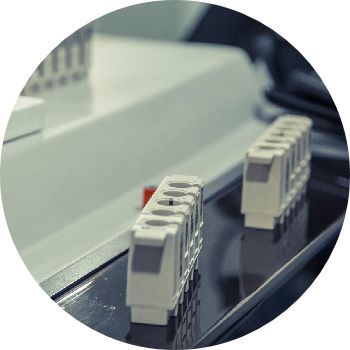Radio Frequency Identification (RFID) is a wireless technology that uses electromagnetic fields to identify and track objects automatically.
Unlike traditional barcodes, RFID enables non-line-of-sight scanning and simultaneous reading of multiple tags, even in harsh environments.
This capability makes it indispensable for industries like logistics, healthcare, and retail, where real-time visibility and operational efficiency are critical.
RFID technology in mobile computing has further expanded its applications, allowing businesses to integrate tracking solutions with handheld devices for seamless workflows.
How RFID Enhances Enterprise Operations?
At the core of RFID systems are handheld RFID solutions for enterprises, which combine portability with advanced data capture.
These devices, such as Android-based RFID mobile computers, leverage intuitive interfaces and customizable apps to streamline tasks like inventory audits and asset tracking.
For example, retail workers using mobile RFID readers can scan hundreds of items in minutes, reducing stock discrepancies by up to 90%.
The integration of RFID with enterprise-grade hardware ensures durability in demanding environments, such as warehouses or manufacturing floors.

Cost-Effective Upgrades with RFID Sleds
For businesses seeking flexibility, RFID sleds offer a modular approach to upgrading existing devices.
These accessories transform standard handheld mobile computers into powerful RFID scanners, eliminating the need for costly hardware replacements.
The benefits of RFID sleds include extended read ranges, compatibility with multiple tag types, and rugged designs suited for industrial use.
Companies like Zebra and Honeywell provide sleds that withstand drops, moisture, and dust, making them ideal for logistics or field service teams.
RFID in Action: Transforming Key Industries
Enterprise asset tracking with RFID is revolutionizing sectors like healthcare and logistics.
Hospitals deploy rugged handheld computers with RFID to locate critical equipment, reducing search times by 70%.
In supply chains, RFID-enabled devices track pallets from warehouses to retail shelves, ensuring accuracy and reducing delivery delays.
A notable example is Walmart’s success in overcoming RFID tag reading challenges on bottled water—a breakthrough achieved through optimized tags and antenna layouts.

Choosing the Right RFID Solution
Selecting an RFID system depends on factors like read range and environmental conditions.
Passive tags suit high-volume applications like retail, while active tags excel in large-scale facilities.
For adaptability, Android-based RFID mobile computers paired with sleds provide a balanced solution.
Brands like CILICO and Feasycom offer devices with long battery life and cloud integration, enabling real-time data synchronization for enterprise asset tracking with RFID.
RFID technology empowers businesses to achieve unprecedented efficiency and accuracy. By adopting handheld RFID solutions for enterprises or integrating RFID sleds, organizations can optimize workflows and reduce operational costs. As industries embrace IoT-driven innovations, RFID remains a cornerstone of digital transformation, proving its value in everything from retail inventory to global supply chains.

-end -